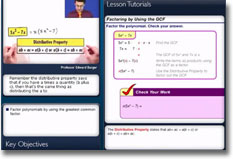Empirical Releases Final Report on HMH Fuse™ iPad App

Today Empirical and Houghton Mifflin Harcourt made the following announcement. You can download the report and research summary from the study using the links below.
Fuse research report
Fuse research summary
Study Shows HMH Fuse™ iPad® App Can Dramatically Improve Student Achievement
Strong implementation in Riverside Unified School District associated with nine-point increase in percentile standing
BOSTON – April 10, 2012 – A study of HMH Fuse: Algebra 1 app released today by research firm Empirical Education Inc. identifies implementation as a key factor in the success of mobile technology. The 2010–2011 study was a pilot of a new educational app from global education leader Houghton Mifflin Harcourt (HMH) that re-imagines the conventional textbook to fully deploy interactive features of the mobile device. The HMH Fuse platform encourages the use of personalized lesson plans by combining direct instruction, ongoing support, assessment and intervention in one easy-to-use suite of tools.
Empirical found that the iPad-using students in the four participating districts: Long Beach, Fresno, San Francisco and Riverside Unified School District (Riverside Unified), performed on average as well as their peers using the traditional textbook. However, after examining its own results, Riverside Unified found an increase in test scores among students taught with HMH Fuse compared to their peers. Empirical corroborated these results, finding a statistically significant impact equivalent to a nine-point percentile increase. The Riverside Unified teachers also reported substantially greater usage of the HMH Fuse app both in teaching and by the students in class.
“Education technology does not operate in a vacuum, and the research findings reinforce that with a supportive school culture and strategic implementation, technology can have a significant impact on student achievement,” said Linda Zecher, President and CEO of HMH. “We’re encouraged by the results of the study and the potential of mobile learning to accelerate student achievement and deepen understanding in difficult to teach subjects like algebra.”
Across all districts, the study found a positive effect on student attitudes toward math, and those students with positive attitudes toward math achieved higher scores on the California Standards Test.
The research design was a “gold standard” randomized control trial that examined the performance of eighth-grade students during the 2010-2011 school year. Each teacher’s classes were randomly assigned to either the treatment group that used the HMH Fuse app or the control group that used the conventional print format of the same content.
“The rapid pace of mobile technology’s introduction into K-12 education leaves many educators with important questions about its efficacy especially given their own resources and experience,” said Denis Newman, CEO of Empirical Education. “The results from Riverside highlight the importance of future research on mobile technologies that account for differences in teacher experience and implementation.”
To access the full research report, go to www.empiricaleducation.com. A white paper detailing the implementation and impact of HMH Fuse in Riverside is available on the HMH website.


